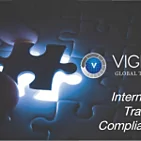Managing Import & Export Operations 101
Managing Import & Export Operations 101
For global businesses, importing and exporting goods efficiently is paramount to growth and success. Engaging in international trade can help companies stay competitive and extend profit margins by reducing costs; gaining access to better quality parts, supplies and materials; expanding into new markets; and buffering themselves from domestic market volatility — to name a few. Yet all these benefits come with a price tag — the headache of international trade compliance.
All global trade activity is subject to regulation. When multiple countries are involved, the red tape increases significantly — placing companies at an increased risk for supply chain bottlenecks due to compliance violations. This is unfortunate, because with the proper knowledge and support, developing an effective compliance operations strategy doesn’t have to be prohibitive.
Let’s take a look at some of the import/export compliance essentials of which you will need to be aware of in order to take advantage of the benefits international trade can bring to your company.
Import & Export Trade Requirements, and How to Stay on Top of Them
Half the battle in staying compliant is doing your due diligence to be aware of all necessary requirements, and documenting everything thoroughly and properly. While staying abreast of all necessary compliance responsibilities and paperwork may seem like a daunting task, it doesn’t have to be.
The first step in this process is defining specific policies and procedures to be used as a standard for managing your international trade requirements. A methodical plan detailing all the requirements and procedures your company needs will ensure a repeatable process that can be followed by any member of the involved teams. It also serves as the backbone for operating and maintaining compliant import and export activities.
While the exact documents you should include will depend on your particular industry and the countries and/or organizations with which you are trading, your records for each transaction should almost always include the following:
- Purchase orders
- Invoices and sales records
- Packing list
- Cargo receipts such as dock receipts, air bills and sea bills
- Bill of lading
- Consular invoice
- Shipping guarantee
- Insurance policies and certificates
- Inspection and/or product testing certificates
- Certificates of health, fumigation, etc.
- Duty-free documentation
- Detailed correspondence records — including letters, emails, notes, text messages and phone call log
- Classification justification statements
- Audit checklists and documentation
You may identify additional requirements to include that pertain to your situation.
Know the Main Players in Import and Export
You will need to work closely with numerous agencies and companies as you take part in international trade activities. Your company will be playing the role of importer or exporter (or both), as will the companies with which you are dealing. In some international transactions, the importer and exporter sell and buy from each other directly, without the aid of a middleman. More often, though, transactions will be facilitated by one or more agents or middleman merchants that may either purchase the goods for resale or assist in the sales and marketing process.
You will also need a carrier, such as FedEx or a freight forwarder, to deliver the merchandise. Of course, you will need to deal with customs administration offices and personnel, both in your home country and in your trade partners’ countries.
Finally, many companies choose to outsource some or all of their import/export operations and compliance tasks to a trade services company such as ours. This can be a very cost-effective option because it allows you to stay lean and focus on the core competencies that make your company profitable.
Why Is All This Necessary?
While at first glance all the complex requirements and procedures involved in international trade may seem like overkill, they are in place for good reason. Ultimately, compliance regulations and documentation help to create a trustworthy cross-border trade environment; prevent the spread of illness, disease and unwanted pests; and protect everyone from terrorist activity.
The headaches of international trade compliance shouldn’t have to be a deal breaker when it comes to importing and exporting goods, even for a smaller company. It takes a little legwork to get started, but putting the proper documentation and procedures in place from the get-go will help open the door for a profitable international trade experience for your company.
And, you needn’t do it alone. If you would like assistance with any aspect of import and/or export compliance, contact us here to learn how easy international trade really can be.

